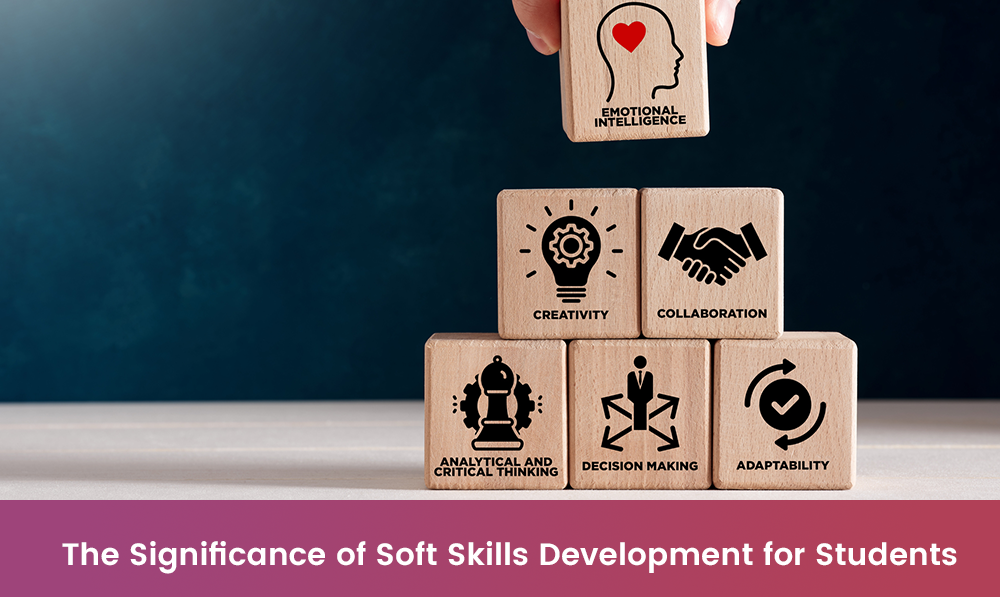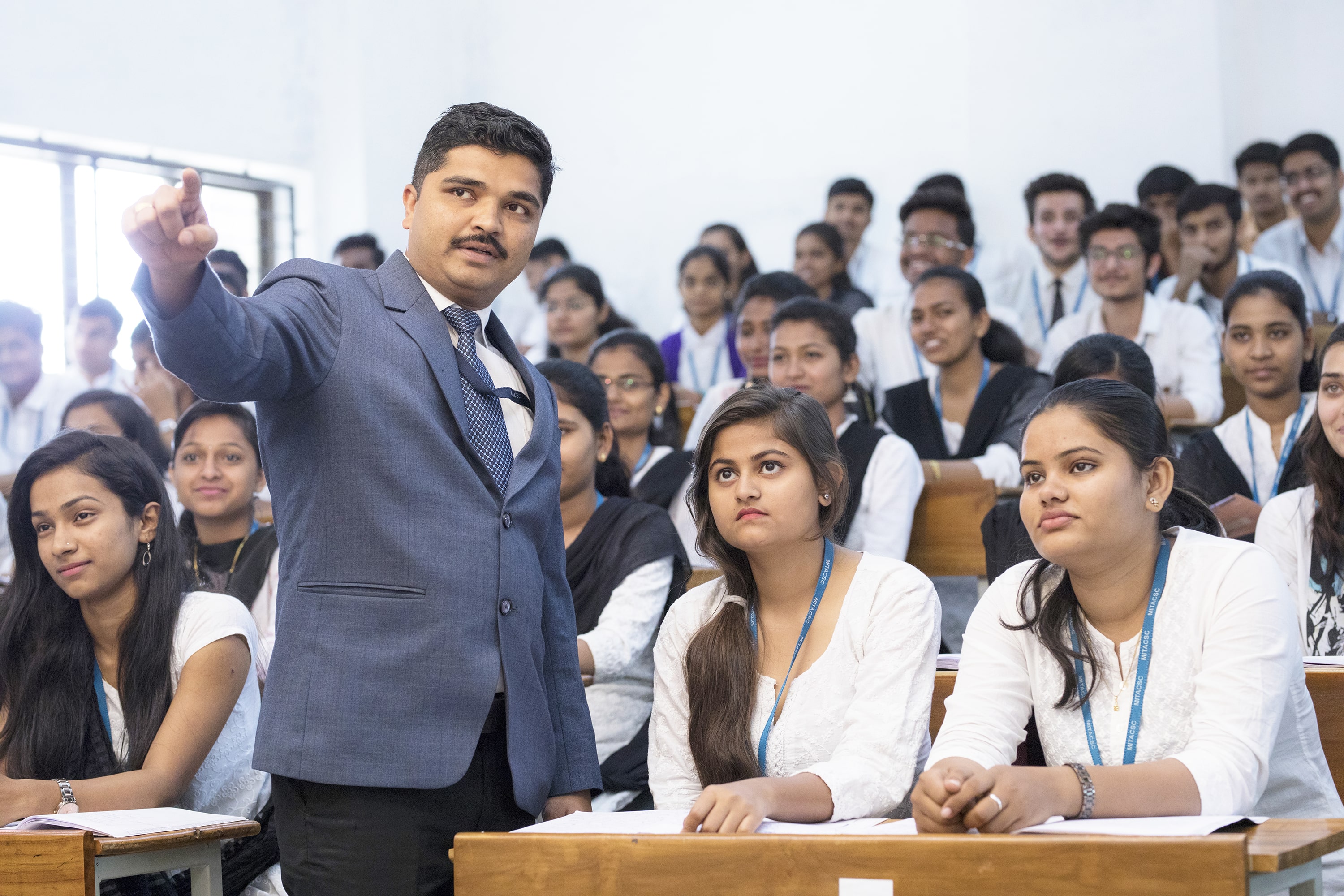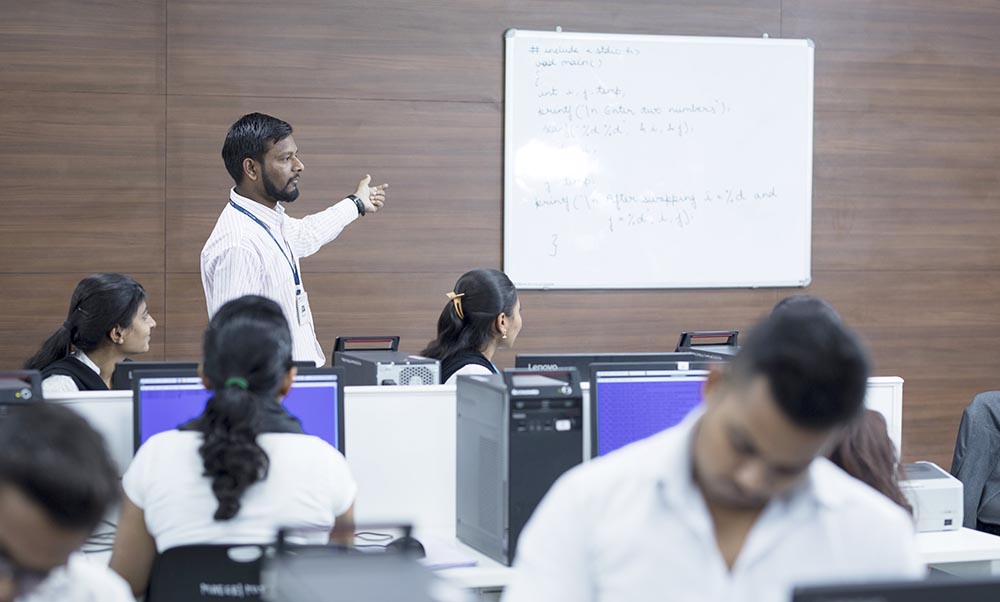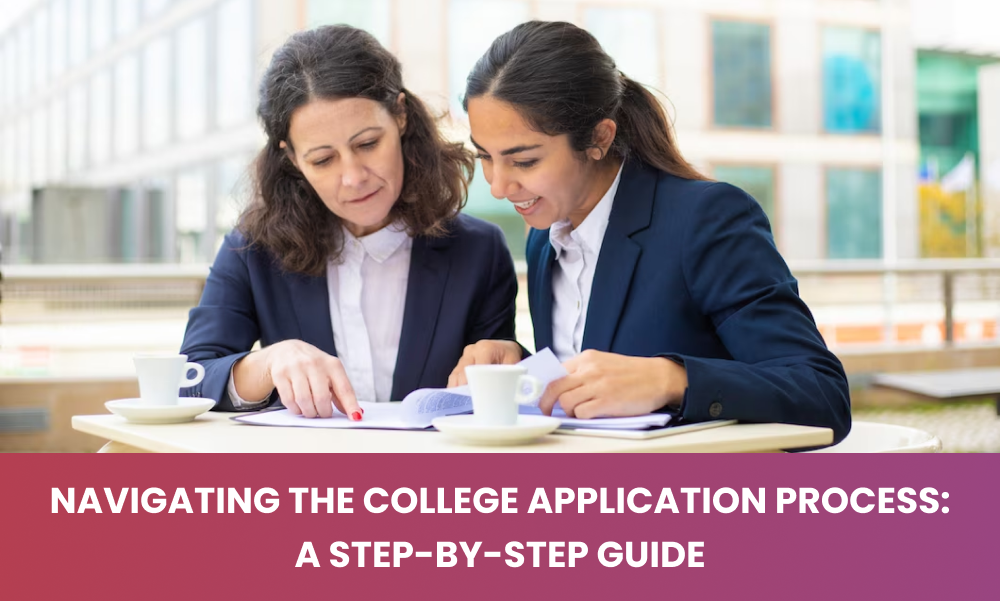
The Significance of Soft Skills Development for Students
Introduction :
Inside the modern world of education, the acknowledgment of soft skills as fundamental to an understudy's complete development has flooded in noticeable quality. A long way past the limits of academic accomplishments, the development of fundamental soft skills remains as a foundation in molding an understudy's holistic excursion. This article leaves on a nuanced investigation of the significant significance of the securing and refinement of soft skills. These characteristics expand their impact a long way past the classroom, assuming a vital part in directing students through the complexities of both their educational odyssey and the difficulties looking for them in the expert circle.
In the contemporary educational scene, the center is shifting past conventional measurements of progress, recognizing that an understudy's capacities expand well into the domain of interpersonal, correspondence, and the capacity to understand people on a profound level. Soft skills, frequently considered the key part of a well-rounded range of abilities, are progressively perceived as basic devices for exploring the intricacies of the cutting edge world.
Top 9 Justifications for Why Students Should Zero in on Soft Skills Development
As students explore their scholarly excursion, the development of soft skills arises as a strengthening feature as well as a transformative force that pushes them toward holistic capability and adaptability. This investigation expects to disentangle the multifaceted aspects that make soft skills helpful qualities as well as fundamental parts in the armory of each and every understudy forging their way in the different and interconnected scene of education and then some.
Soft Skills Characterized:
Soft skills include a range of interpersonal, correspondence, and conduct credits that facilitate powerful connection and cooperation. These skills, frequently alluded to as "relationship building abilities" or "the capacity to understand individuals at their core," supplement specialized or hard skills, adding to a well-rounded and versatile range of abilities.
Exploring the Educational Scene:
With regards to education, the development of soft skills is basic to an understudy's general achievement. While scholarly ability is undoubtedly fundamental, the use of soft skills amplifies an understudy's capacity to fathom, impart, and connect successfully. classroom dynamics, bunch projects, and extracurricular exercises act as hatcheries for leveling up these abilities.
Upgraded Relational abilities:
Soft skills, unmistakably including correspondence, are catalysts for scholarly accomplishment. An understudy capable of articulating contemplations, effectively tuning in, and communicating thoughts concisely is better prepared to understand complex subjects. Viable correspondence cultivates a helpful learning climate, empowering joint effort and information trade among peers.
Group Coordinated effort and Initiative:
Education stretches out past individual achievements; it includes collaborative efforts and overall vibes. Soft skills assume a vital part in powerful group joint effort. Students having skills like cooperation, adaptability, and compromise contribute emphatically to a bunch of projects, setting them up for the collaborative idea of the expert world.

Decisive Reasoning and Critical thinking:
Soft skills contribute significantly to the development of decisive reasoning and critical abilities to think. Students skilled at investigating information, taking into account different viewpoints, and applying innovative arrangements are better situated to explore academic difficulties and, accordingly, certifiable intricacies.
Groundwork for Proficient Achievement:
Past the scholarly domain, the securing of soft skills is a strategic interest in an understudy's future expert achievement. As students progress into the workforce, bosses progressively perceive the worth of soft skills in deciding a singular's viability and potential for professional development.
Employability and Soft Skills:
In the present serious work market, having specialized skills alone may not get the job done. Bosses look for up-and-comers with a holistic range of abilities, including solid soft skills. Credits like compelling correspondence, adaptability, and the capacity to understand people on a deeper level upgrade a singular's employability, making them significant supporters of a different and collaborative workplace.
Adaptability in a Unique World:
The contemporary expert scene is described by fast changes and advancing patterns. Soft skills, especially adaptability and resilience, enable students to explore vulnerabilities and embrace nonstop learning. These traits position people as resources in unique workplaces where versatility is profoundly esteemed.
Systems administration and Relationship Building:
In the perplexing dance of vocation movement, soft skills arise as the choreographers of expert connections. Organizing, a key part of professional development, unfurls on the phase of powerful correspondence, interpersonal artfulness, and the imaginativeness of building significant associations. For students, proficiency in these soft skills isn't only a credit to themselves, however a vital aspect for opening doors of opportunity and forming collisions that rise above value-based commitment. The capacity to connect really, listen effectively, and impart influentially positions students as proficient engineers of their expert organizations. As the colloquialism goes, it's what you know, yet who you know. In this unique circumstance, soft skills act as the social cash that pushes students toward a future where the strength of associations frequently decides the direction of progress.
Conclusion :
In conclusion, the development of soft skills isn't simply a correlative part of education; it is a foundation of holistic understudy development. Soft skills engage students to succeed academically, team up successfully, and explore the complexities of the expert domain. Perceiving the significant effect of soft skills on employability, adaptability, and interpersonal connections positions students for progress past the classroom, guaranteeing they arise too rounded people ready for the difficulties of a dynamic and interconnected world.








